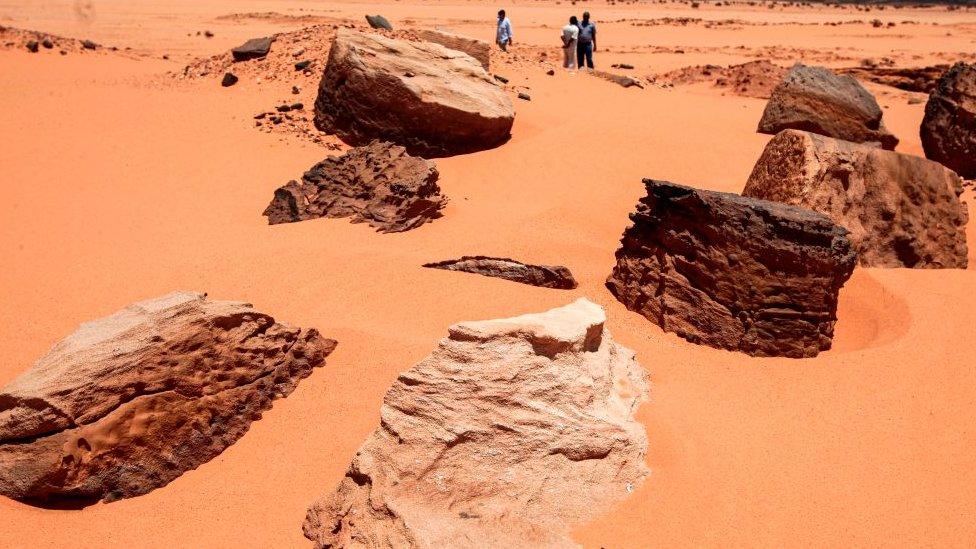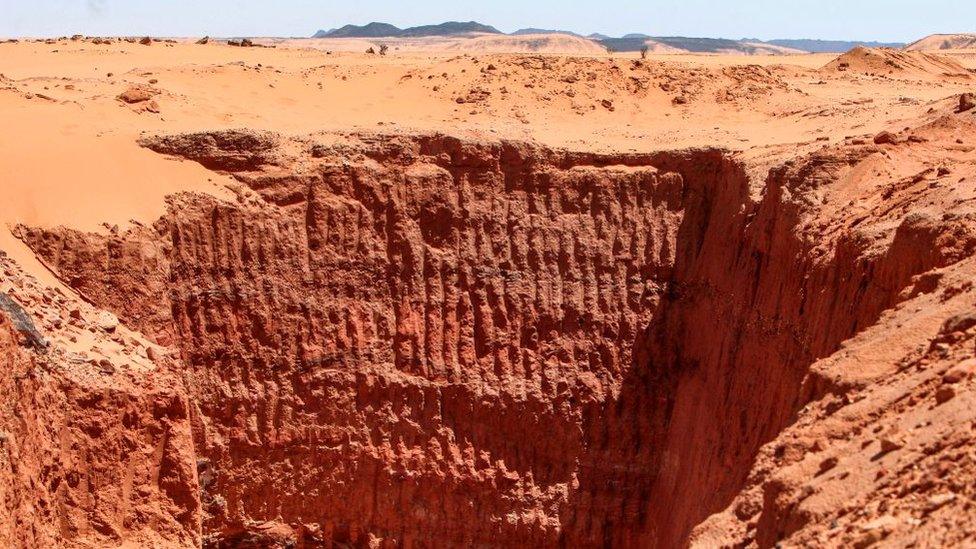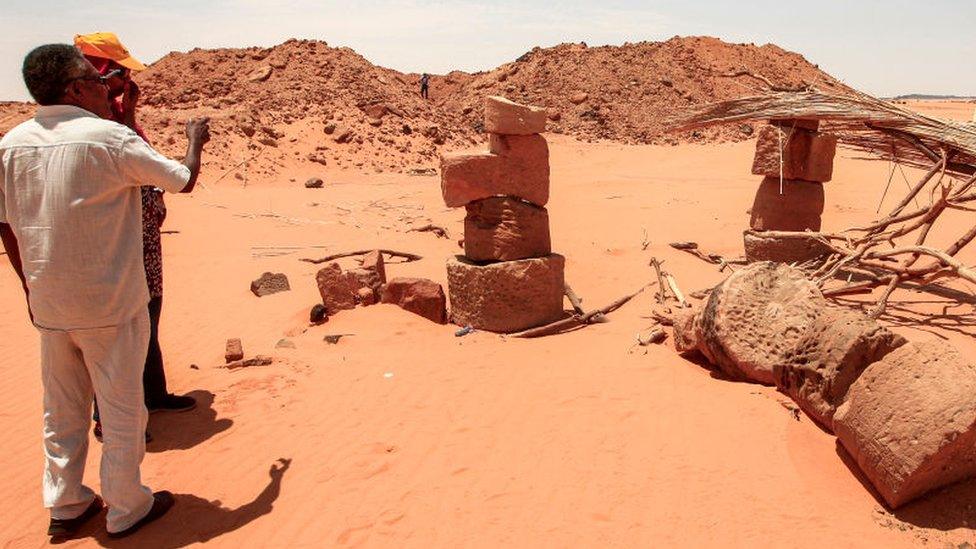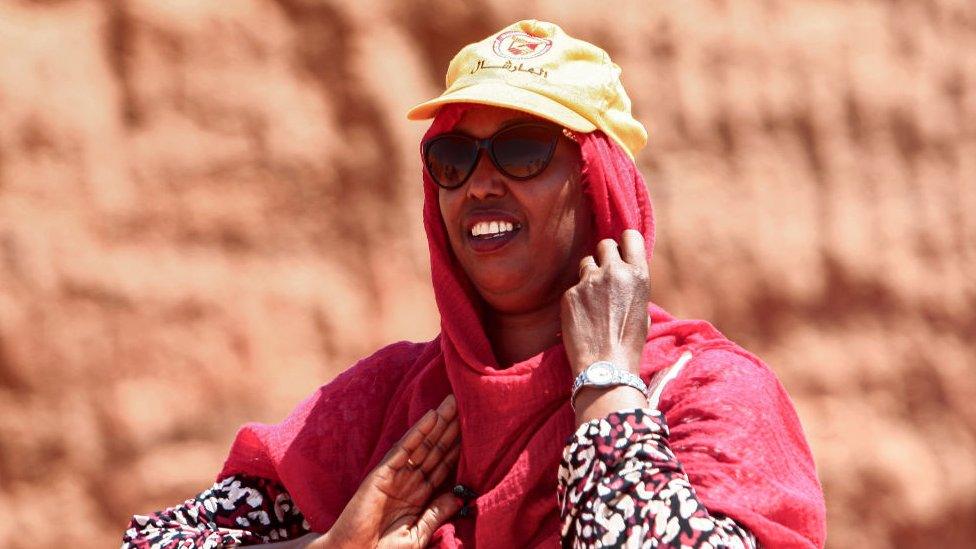Sudan's Jabal Maragha: Illegal gold diggers destroy ancient site
- Published

Remains of the two millenia-old site of Jabal Maragha that was ravaged by gold hunters are scattered on the sand in the desert
Illegal gold diggers have destroyed a 2,000-year-old archaeological site in Sudan in the eastern region of the Sahara desert, official say.
The Jabal Maragha site, which dates from the Meroitic period between 350 BC and 350 AD, is said to have either been a small settlement or a checkpoint.
Officials from Sudan's antiquities and museums department said when they visited the site, some 270km (170 miles) north of the capital Khartoum, last month they found two mechanical diggers and five men at work.
They had excavated a vast trench about 17 metres (55 feet) deep, and 20 metres long.

"They had only one goal in digging here - to find gold... they did something crazy; to save time, they used heavy machinery," a shocked archaeologist Habab Idriss Ahmed, who has worked at the historic location since 1999, told the AFP news agency.
Sudan is home to hundreds of pyramids and other ancient sites, although they are not as well known as those in its northern neighbour, Egypt.
Sudan's archaeologists warned that the destruction was not unique but part of a growing problem.
At Sai, a 12km-long river island in the Nile, hundreds of graves, some dating back to the times of the pharaohs, have been raided and destroyed by looters.
"Out of a thousand more or less well-known sites in Sudan, at least a hundred have been destroyed or damaged," said Hatem al-Nour, Sudan's director of antiquities and museums.
He added that the lack of security at the sites made them easy targets for looters.

A team of archaeologist inspects stones stacked up on top of each other to prop up a roof for a dining room to be used by gold hunters
Sudan is Africa's third largest producer of gold, after South Africa and Ghana, with commercial mining bringing in $1.2bn (£900m) to the government last year, AFP reports.
But illegal mining is said to be encouraged by some local authorities and businessmen who give machines to treasure hunters.

Prof Muhammad suggests that teaching students about Sudan's history could encourage them to protect the sites
Enforcement of laws is also not stringent - the diggers who destroyed the Jabal Maragha, were freed without charge. It is not clear why.
"They should have been put in jail and their machines confiscated. There are laws," said Mahmoud al-Tayeb, a former expert from Sudan's antiquities department.
One of the long-term strategies to protect the historical sites is to teach young people about Sudanese history, so that they can cherish their heritage, Prof Habbab Idris Muhammad, the chief inspector at the antiquities and museums department told the Suna news agency.

Find out more about Sudan's pyramids:
Ben Zand visits a "lost" city of Nubian pyramids in Sudan

All picture subject to copyright